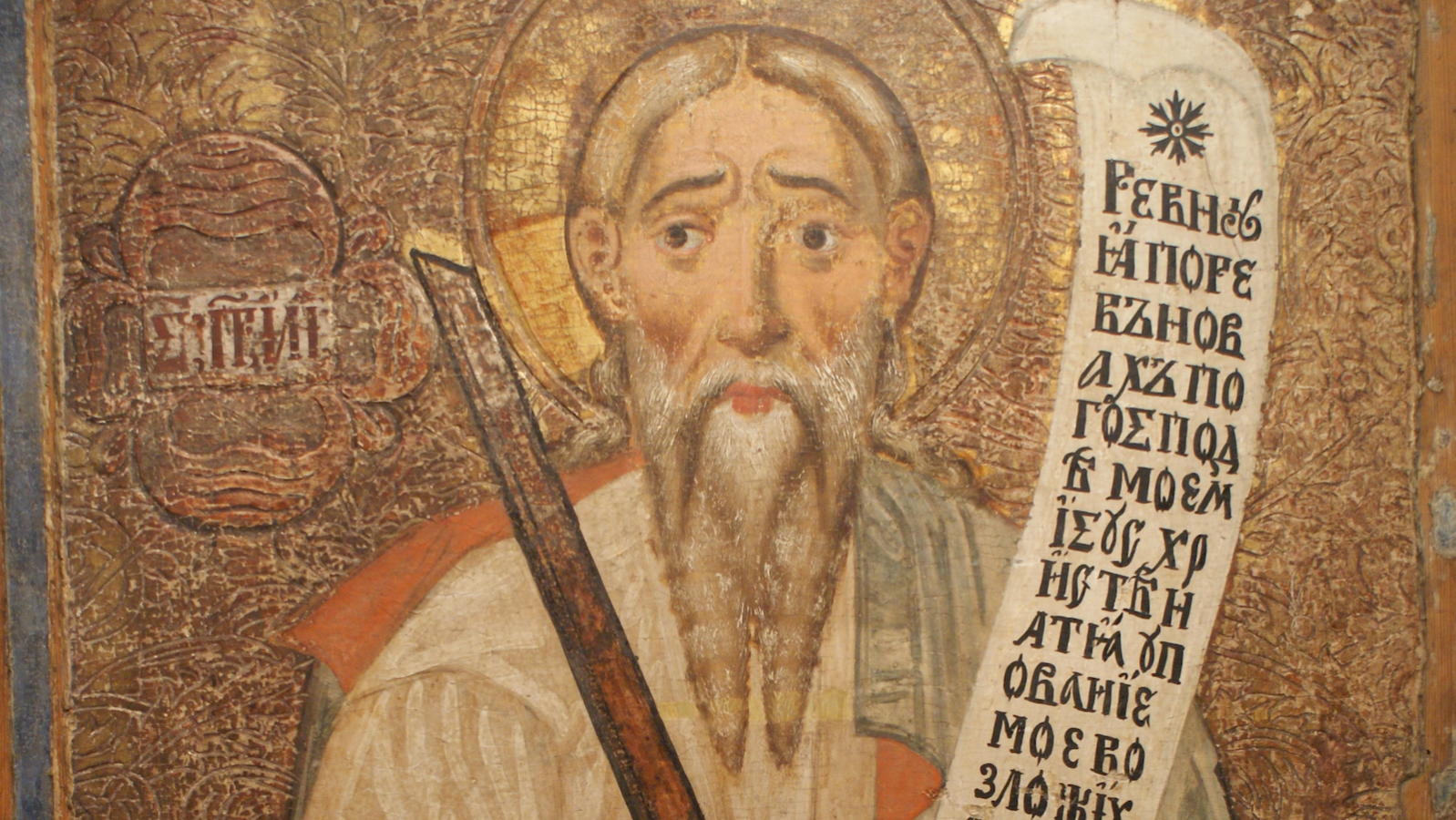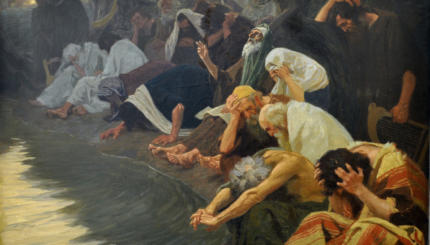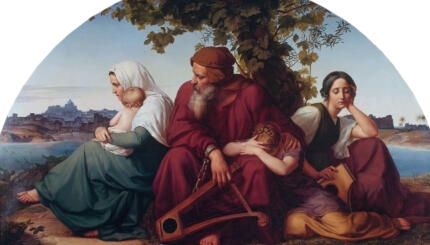Commentary on Parashat Ki Tisa, Exodus 30:11 - 34:35
In Parashat Ki Tisa, Moses confronts the consequences of the worship of the Golden Calf. The Haftarah for Parashat Ki Tisa focuses on Elijah, and his mission to disprove the power and existence of two other foreign gods, Baal and Asherah.
Elijah was a prophet who lived in the ninth century BCE, during the time that King Ahab and Queen Jezebel ruled Israel. When the Haftarah begins, Elijah has been hiding east of the Jordan River for three years after bringing a drought upon Israel at the beginning of his career (17:1). God commands Elijah to appear before the king, who has been searching the land for water with his servant Obadiah. Obadiah comes across Elijah and brings Ahab to meet the prophet.
Ahab taunts Elijah, calling him, “troubler of Israel,” (18:17) for bringing the draught upon Israel, but Elijah reverses the insult, saying, “It is not I who have brought trouble on Israel, but you and your father’s house, by forsaking the commandments of the Lord and going after the Baalim” (18:18). Elijah then asks Ahab to summon all of Israel to meet him on Mount Carmel, along with 400 prophets of Baal and 400 prophets of Asherah.
Challenge on the Mountain
When everyone has gathered on the mountain, Elijah issues a challenge to the other prophets. They will take two bulls, one for the prophets of Baal and Asherah, and one for Elijah. Each bull will be slaughtered and put on top of a wooden base as a sacrifice, but no fire will be applied to the meat. Then the prophets of Baal and Asherah will call out to their gods, and Elijah will call out to his God. “The god who responds with fire, that one is God,” (18:24) Elijah says.
The prophets of Baal go first, preparing the animal and calling out to Baal. They call all morning, perform a hopping dance, and even slice their own flesh with knives when Elijah taunts them. But there is no fire.
Then Elijah repairs damage that had been done to a pre-existing altar, setting up 12 stones to correspond with the 12 tribes for the new altar. He makes a trench around the altar, lays the meat on top, and fills the trench with water, getting the wood of the altar completely wet.
Finally, Elijah comes forward and says, “Answer me, O Lord, answer me, that this people may know that You, O Lord, are God; for You have turned their hearts backward” (18:37).” Fire then comes down from the heavens and consumes the burnt offering, the wood, the stones, and the earth, even drying up the water that was in the trenches. When the people see this they fling themselves to the ground and cry out, “The Lord alone is God, The Lord alone is God!” (18:39)



